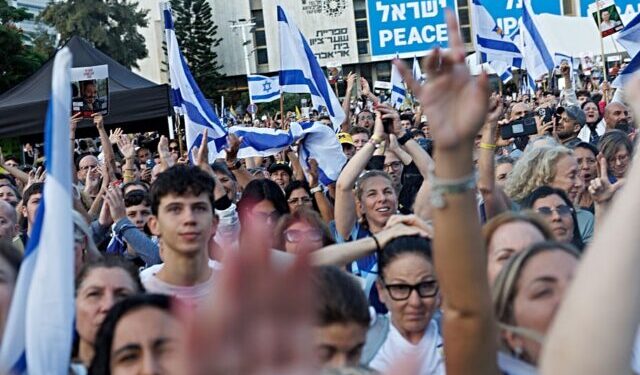It was a morning few in Israel—or the free world—will ever forget. Under the blazing Mediterranean sun, the last 20 living Israeli hostages walked free, released from the grip of Hamas terrorists after nearly two years in captivity. Their return marked more than a homecoming—it symbolized the closing of one of the darkest chapters since the October 7, 2023 attacks that shocked the world.
Hours later, U.S. President Donald Trump stepped onto Israeli soil, greeted by Prime Minister Benjamin Netanyahu and President Isaac Herzog. The air was electric—flags waved, tears flowed, and chants of “Trump! Trump! Trump!” echoed from the Knesset gallery. For many Israelis, it was a reminder of something they hadn’t felt in a long time: relief, gratitude, and hope.
Trump arrived not just as a visitor, but as a peacemaker—carrying with him a U.S.-brokered plan that ended a brutal war and opened the door to a new era of stability in the Middle East. “This is not only the end of a war, but the end of an age of terror and death, and the beginning of an age of faith and hope,” Trump declared before the packed Knesset chamber. Lawmakers rose to their feet, cheering a line that seemed to crystallize years of pain and perseverance.
His message was direct, unvarnished, and deeply rooted in moral clarity—a quality often missing in modern diplomacy. “We gather on a day of profound joy and soaring hope, of renewed faith, and above all, a day to give our deepest thanks to the Almighty God of Abraham, Isaac and Jacob,” he said. In that moment, faith, freedom, and resolve—values long cherished by both Americans and Israelis—stood side by side.
The peace deal itself was a testament to patient but firm negotiation. In exchange for the hostages’ release, Israel agreed to free roughly 2,000 Palestinian prisoners, including 250 convicted terrorists and 1,700 detainees captured during the conflict. Trump confirmed to reporters before his speech that Hamas had agreed to disarm under the plan’s conditions—a requirement many doubted was possible until now. When asked if the war in Gaza was over, his answer was short and definitive: “Yes.”
Inside the Knesset, Prime Minister Netanyahu hailed Trump as “the greatest friend Israel has ever had in the White House.” That wasn’t mere flattery. From recognizing Jerusalem as Israel’s capital to pushing back against Iran’s nuclear ambitions, Trump’s record in the region spoke for itself. Netanyahu even nominated him for the Israel Prize—the nation’s highest honor—making him the first non-Israeli ever considered for the award. “Donald Trump is the greatest friend that Israel has ever had in the White House,” he repeated, drawing applause.
Knesset Speaker Amir Ohana went further, calling Trump “a giant of Jewish history,” comparing him to Cyrus the Great—the ancient Persian king who freed the Jewish people from Babylonian exile. The symbolism was not lost on the audience. In Jewish and Christian tradition alike, leaders who act boldly to defend freedom and faith are remembered not just for policy, but for providence.
As Trump spoke, his characteristic humor broke through. He thanked Netanyahu with a grin—“He’s not an easy guy to deal with, but that’s what makes him great”—and quipped about his son-in-law, Jared Kushner, who “loved Israel so much that my daughter converted to Judaism.” But humor aside, his tone was resolute: “You’ve won,” he told Israel’s lawmakers. “By force of arms. Now it is time to transform military victory into peace and prosperity.”
He praised America’s partnership with Israel and called for the rebuilding of Gaza—not through endless aid packages or U.N. bureaucracy—but through a new “Board of Peace” that would channel regional wealth into genuine reconstruction, overseen by nations that had embraced peace through the Abraham Accords. In other words: accountability, not charity.
Trump didn’t shy away from contrasting this moment of triumph with past missteps. “There was a hatred toward Israel—it was an absolute hatred,” he said of the Obama and Biden years, recalling Netanyahu’s failed pleas to stop the Iran Deal. “It was like talking to a wall.” His reversal of that policy, he noted, wasn’t about revenge—it was about restoring common sense and moral clarity to American foreign policy.
Then, in a move that drew laughter and a standing ovation, Trump turned to President Herzog and said, “Cigars and champagne, who the hell cares about that?”—a jab at Netanyahu’s lingering corruption trial, which many in Israel see as politically motivated. Trump suggested Herzog simply pardon him, an idea that brought the room to its feet.
By the end of his address, Trump had not only won over the chamber but reframed the entire conversation about peace in the Middle East. “Peace is not just a hope—it’s a reality we can build upon,” he said. “The Middle East is ready to embrace its historic potential.”
As he left the podium, the mood in the Knesset was one of gratitude and renewed faith. It wasn’t just about policy wins—it was about reclaiming belief in something bigger than politics: in courage, conviction, and divine providence guiding history once more. “I love Israel,” Trump concluded. “I’m with you all the way. You will be bigger, better, stronger, and more loving than ever before. God bless you, God bless the United States of America, and God bless the Middle East.”
And for a region long plagued by fear and violence, it finally felt like the dawn of something new—a peace built not on appeasement, but on strength, faith, and freedom.




















